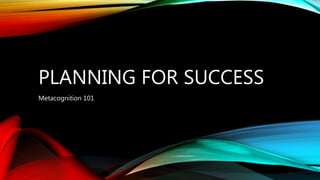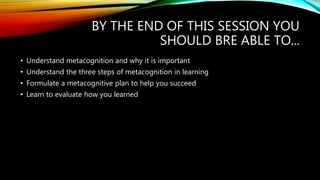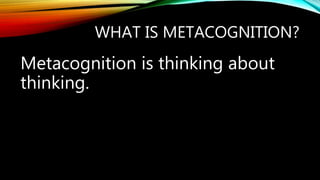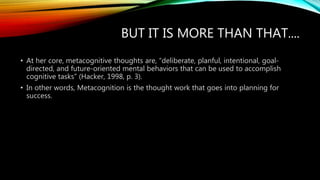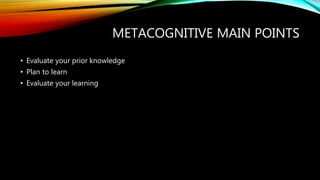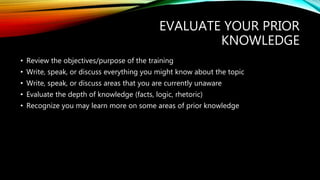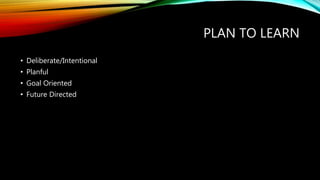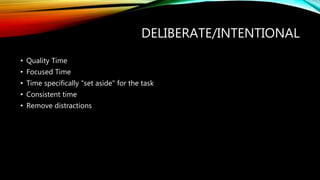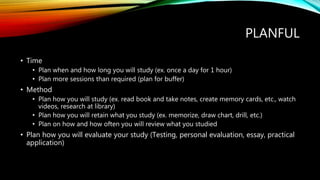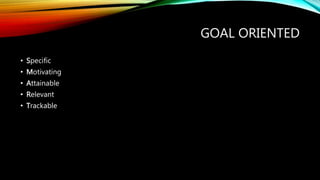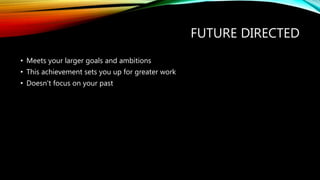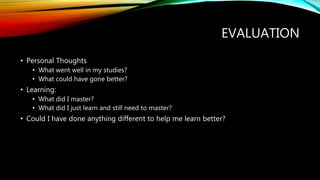Metacognition 101
- 2. BY THE END OF THIS SESSION YOU SHOULD BRE ABLE TO... • Understand metacognition and why it is important • Understand the three steps of metacognition in learning • Formulate a metacognitive plan to help you succeed • Learn to evaluate how you learned
- 3. WHAT IS METACOGNITION? Metacognition is thinking about thinking.
- 4. BUT IT IS MORE THAN THAT.... • At her core, metacognitive thoughts are, “deliberate, planful, intentional, goal- directed, and future-oriented mental behaviors that can be used to accomplish cognitive tasks” (Hacker, 1998, p. 3). • In other words, Metacognition is the thought work that goes into planning for success.
- 5. METACOGNITIVE MAIN POINTS • Evaluate your prior knowledge • Plan to learn • Evaluate your learning
- 6. EVALUATE YOUR PRIOR KNOWLEDGE • Review the objectives/purpose of the training • Write, speak, or discuss everything you might know about the topic • Write, speak, or discuss areas that you are currently unaware • Evaluate the depth of knowledge (facts, logic, rhetoric) • Recognize you may learn more on some areas of prior knowledge
- 7. PLAN TO LEARN • Deliberate/Intentional • Planful • Goal Oriented • Future Directed
- 8. DELIBERATE/INTENTIONAL • Quality Time • Focused Time • Time specifically "set aside" for the task • Consistent time • Remove distractions
- 9. PLANFUL • Time • Plan when and how long you will study (ex. once a day for 1 hour) • Plan more sessions than required (plan for buffer) • Method • Plan how you will study (ex. read book and take notes, create memory cards, etc., watch videos, research at library) • Plan how you will retain what you study (ex. memorize, draw chart, drill, etc.) • Plan on how and how often you will review what you studied • Plan how you will evaluate your study (Testing, personal evaluation, essay, practical application)
- 10. GOAL ORIENTED • Specific • Motivating • Attainable • Relevant • Trackable
- 11. FUTURE DIRECTED • Meets your larger goals and ambitions • This achievement sets you up for greater work • Doesn't focus on your past
- 12. EVALUATION • Personal Thoughts • What went well in my studies? • What could have gone better? • Learning: • What did I master? • What did I just learn and still need to master? • Could I have done anything different to help me learn better?
- 13. THE END

